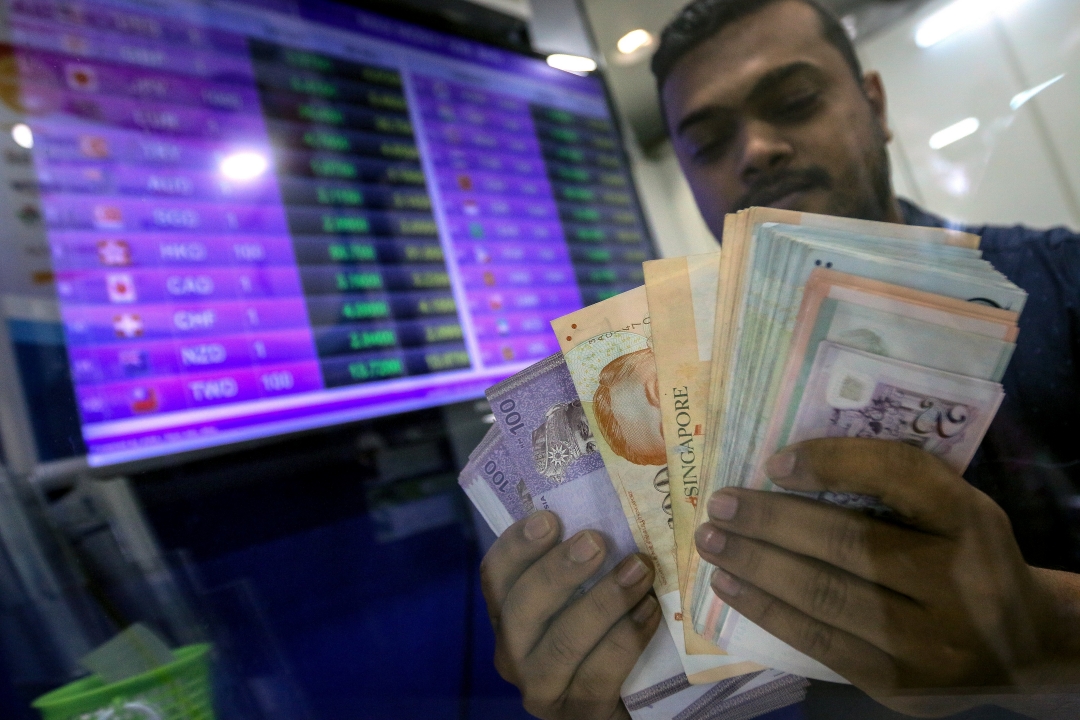
The other underlying reason for the rate hike would be due to the disposition of the state of the ringgit which has been depreciating sharply against the US dollar – which dropped about 4.8 per cent since the start of the year – as well as with other major and regional currencies. – Bernama photo
KUCHING (May 12): Analysts are of the opinion that the state of the ringgit – which has been depreciating sharply against the US dollar as well as with other major and regional currencies – were among the reasons behind the surprise hike in the overnight policy rate (OPR).
Kenanga Investment Bank Bhd (Kenanga Research) said it came as a surprise that Bank Negara Malaysia (BNM) would jump on the interest rate hike bandwagon this soon, given that the economic recovery remains relatively fragile and average headline inflation remains within a manageable level.
“Hence, we suspect that the other underlying reason for the rate hike would be due to the disposition of the state of the ringgit which has been depreciating sharply against the US dollar – which dropped about 4.8 per cent since the start of the year – as well as with other major and regional currencies.
“The strong selling pressure is largely attributed to the rising market volatility mainly due to the US Fed’s hawkish stance and the impact of China’s zero-Covid-19 policy.
“A rate hike would send a signal that may stem further capital outflow. The concern is especially of the large foreign holdings of Malaysia Government Securities, which account for 38.8 per cent share of the total.
Similarly, AmBank Economics said it appears that the decision by BNM to raise rates is more to address the interest rate differential.
“Should the ringgit continue to weaken, the impact would be more significant on importers. Based on our analysis, we found that the interest rate differential between the OPR and the US Federal Reserve’s funds rate tends to have some impact on the ringgit,” it said in its own analysis.
“This justifies the recent depreciation of the ringgit.”
Apart from the hawkish tone of the Federal Open Market Committee members, AmBank Economics said outflows from the bond market, oil prices and the depreciation of the yuan were also among the reasons.
“Besides, it will take a toll on our cross rates which are already weakening against some of the regional currencies,” it added.
“A continuous weakening of the ringgit versus regional cross rates could affect and impact the domestic economy.
“This is particularly true with the arrival of foreign workers who will now demand higher wages to compensate for the weak ringgit versus their home country’s currency.”
